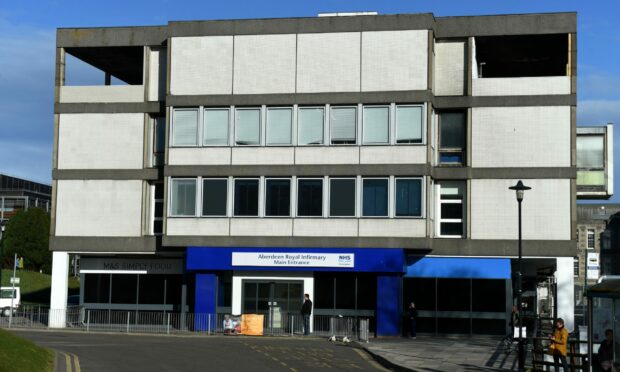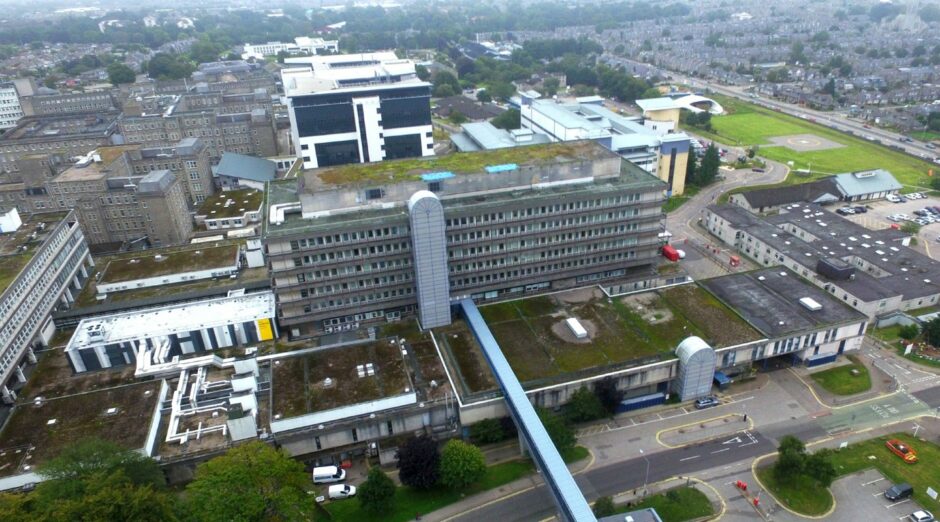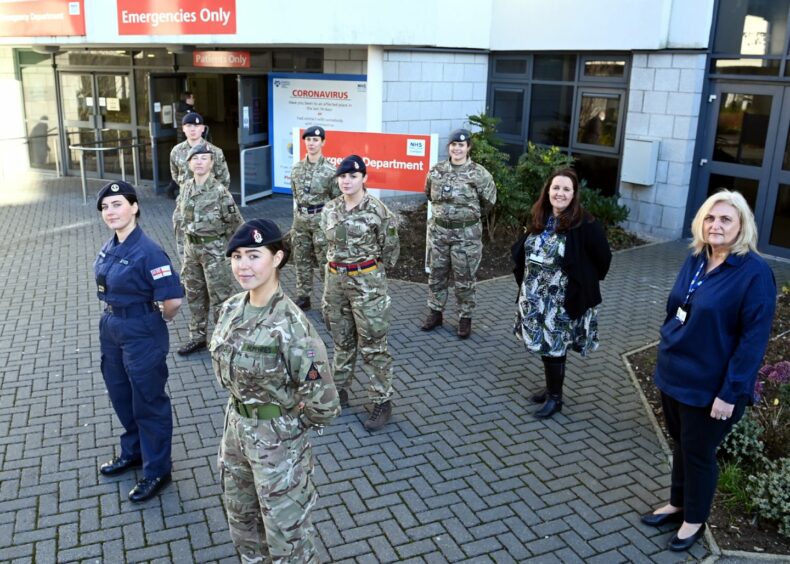NHS Grampian bosses are “poised and ready” to declare a major incident amid a rapid surge in coronavirus cases – but say they’re optimistic things could be “levelling off”.
In the last week alone, the number of Covid patients in north-east hospitals has increased by 32%, and those in intensive care have shot up to 74%.
Health chiefs say it has been “exceptionally tough” for health and social care services across the area, with staff absences and the usual winter pressures cited as some of the challenges.
How many Covid patients are there in NHS Grampian?
The latest figures, up to January 13, show there are 90 patients currently in an NHS Grampian hospital being treated for Covid.
One week prior, there were 78.
Additionally, the number of those in intensive care has increased from five to eight.
At the same time, however, bosses say there are “signs of hope” – but note the north-east is slightly behind the national trajectory.
At 8am on January 7, a total of 1,200 new Covid cases were confirmed in the region, with 287 close contacts identified and self-isolating.
On January 13, there were 445 new cases, but 295 people self-isolating.
Plan in place to tackle Omicron
NHS Grampian chiefs are emphasising the importance of people registering the results of their lateral flow tests.
Doing so will help the health board understand if infection rates are dropping, they said.
A spokeswoman added: “When the facts change, we change with them.
“Be assured that our Omicron plan is poised and ready to be escalated if any of these trigger points become unmanageable.
“For now, we continue to keep a very close eye on the data.”
‘Major incident’ could be triggered as military steps in
Last week, bosses at NHS Grampian warned they may need to declare a “major incident” after a rise in cases.
A series of criteria have to meet in order to declare it.
These “key trigger points” include the likes of the number of Covid patients in hospital and levels of staff sickness as a result of the coronavirus.
If the health board does so, NHS Grampian will be able to take special measures to cope.
This means staff may be affected with regards to deployment, non-critical clinical and non-clinical activity with changes in service capacity.
Additionally, 38 military personnel are now working across the north-east to assist the health board.
Overall there are more than 80 medics helping the NHS throughout Scotland, and a further 100 assisting the ambulance service.


